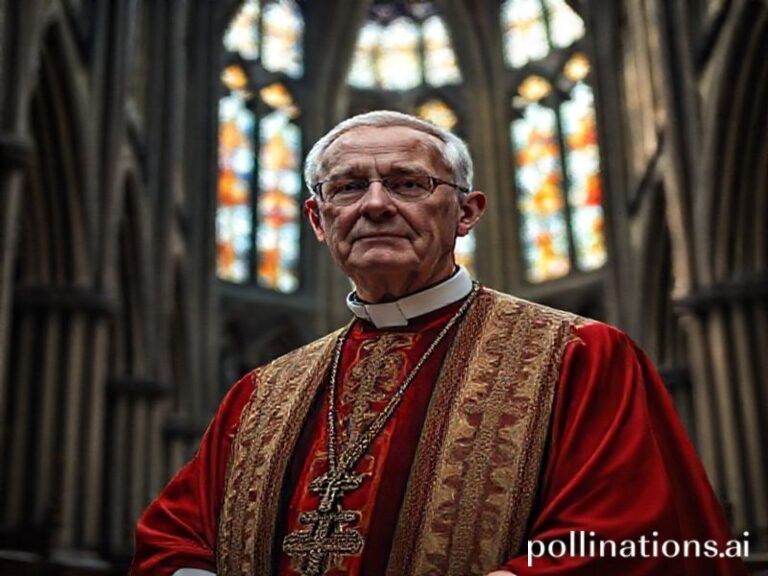Global Ledger of Virtue: How The Good Place Became Every Nation’s Favorite Moral Receipt
The Good Place: A Global Audit of the Afterlife’s Balance Sheet
By Dave’s Locker International Desk
Let us begin with the obvious: if the universe were a multinational corporation, The Good Place would be its glossy sustainability report—equal parts aspirational fiction and creative accounting. While NBC’s sitcom wrapped in 2020, its premise keeps ricocheting around the planet like a well-traveled diplomat with diplomatic immunity from reality. From Berlin’s lecture halls to Jakarta’s rideshare radios, humans are still debating whether eternal frozen yogurt is a reward or a punishment, and whether any moral score-keeping algorithm could survive contact with late-stage capitalism. Spoiler: it can’t, but watching it try is darkly hilarious.
Consider the show’s premise: every act on Earth earns or loses points; cross a threshold and you’re chauffeured to a non-denominational Ritz-Carlton in the sky. Elegant—until you remember that 1.3 billion people still lack reliable electricity, making “ethical almond milk” a luxury item somewhere between Fabergé eggs and honest politicians. In sub-Saharan Africa, where daily moral math often involves choosing between bribing a nurse or watching a relative die, the idea that buying fair-trade sneakers might tip the cosmic scales is less inspirational than insulting. Yet the show streams there, dubbed in French or Hausa, because bandwidth is cheaper than clean water and irony travels duty-free.
Meanwhile, in China—where social credit systems already gamify behavior—the government briefly flirted with its own “Good Citizen Points” app. Citizens joked that it was like the show, minus the jokes and plus facial recognition. When the pilot program collapsed under the weight of fraud and public ridicule, state media blamed “foreign cultural influences.” Translation: American afterlife sitcoms are apparently powerful enough to threaten authoritarian control, which may be the most optimistic sentence written since the Paris Agreement.
Europe, ever the continent that likes its existential crises paired with espresso, has taken a more academic approach. The University of Utrecht now offers a seminar titled “The Ontology of Moral Desert in Post-Broadcast Narrative Comedy.” Enrollment spiked after students realized the reading list was shorter than TikTok’s terms of service. Across the Channel, Brexit negotiators briefly referenced the show while debating Northern Ireland customs arrangements—proof that metaphysical comedy can be weaponized even when nobody understands the punch line.
Latin America, long experienced in bureaucratic purgatories of its own, embraced the series as a how-to guide for surviving actual institutions. In Mexico City, a startup sells “Neighborhood Points” redeemable for street tacos if you recycle or report potholes. The program lasted three weeks before cartels hacked the leaderboard, proving that even digital karma is not immune to supply-chain issues.
The Middle East found the show’s refusal to mention any specific religion either refreshingly inclusive or suspiciously evasive, depending on the imam you ask. Dubai’s marketing department, never one to miss a branding opportunity, briefly floated “The Good Place™ Water Park—Sin Less, Splash More!” The project stalled when consultants calculated that installing moral judgment sensors on water slides violated at least three human-rights conventions, though they noted a loophole if the sensors were labeled “art installations.”
All of which brings us to the broader significance: the show’s greatest trick was convincing a fractured, overheating world to laugh at the idea that morality can be quantified while simultaneously doom-scrolling through evidence that it can’t. It offered us the fantasy that somewhere, a celestial auditor is keeping receipts—comforting, until you realize the receipts are printed on non-recyclable vellum and the auditor outsourced the call center to Hell. Yet the fantasy persists, because the alternative is acknowledging that the planet itself is being leveraged into a junk bond by its own board of directors.
In the end, The Good Place was never about the afterlife; it was about this one, and the absurd optimism required to keep pressing “Accept” on terms and conditions none of us read. If that isn’t a metaphor for international diplomacy, I don’t know what is. So enjoy your frozen yogurt, comrades. Just remember: somewhere, an algorithm is watching, and it grades on a curve shaped suspiciously like a hockey stick graph of global emissions. Bon appétit.







